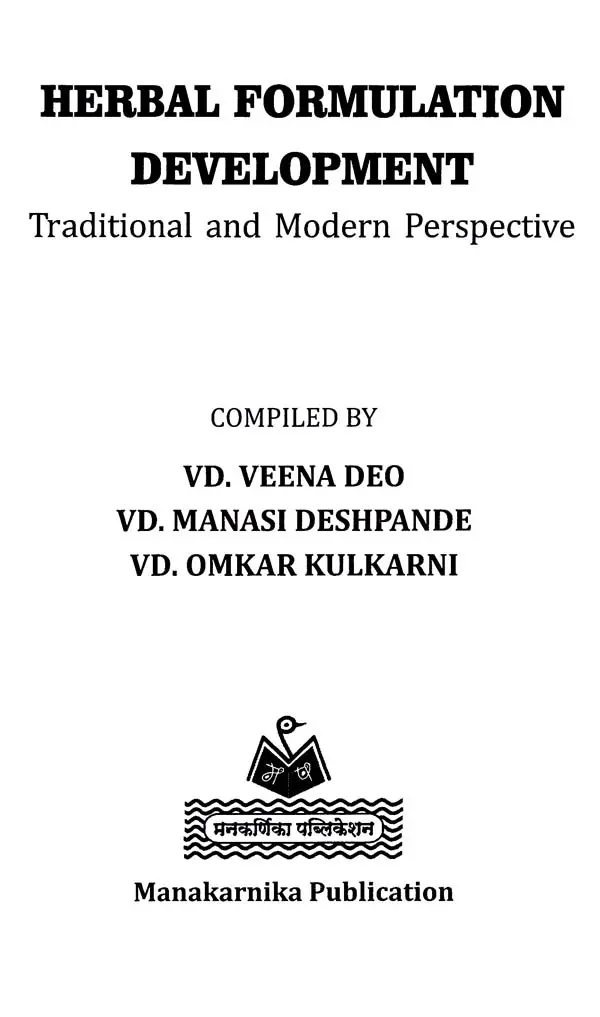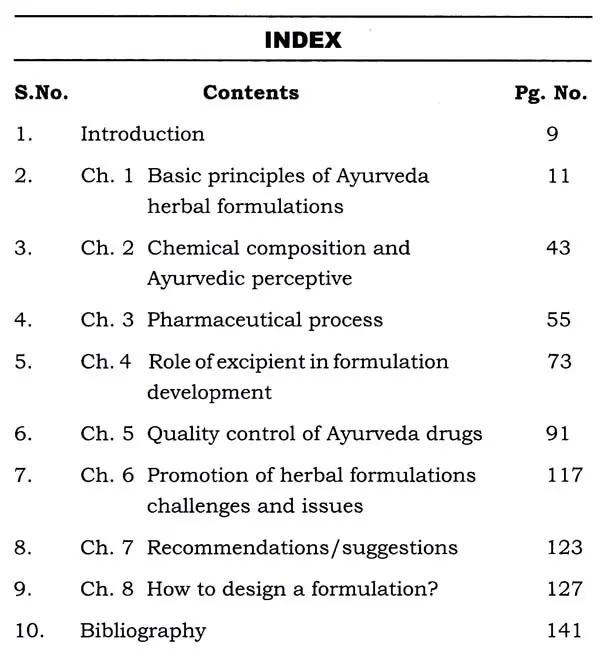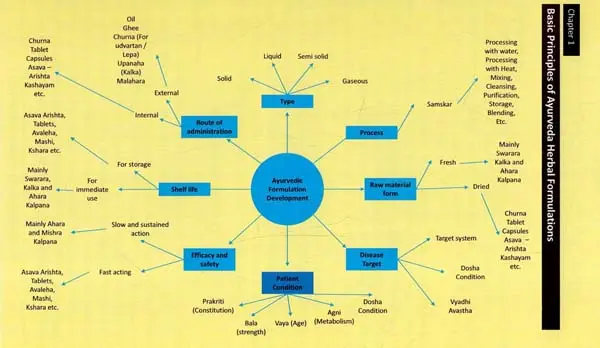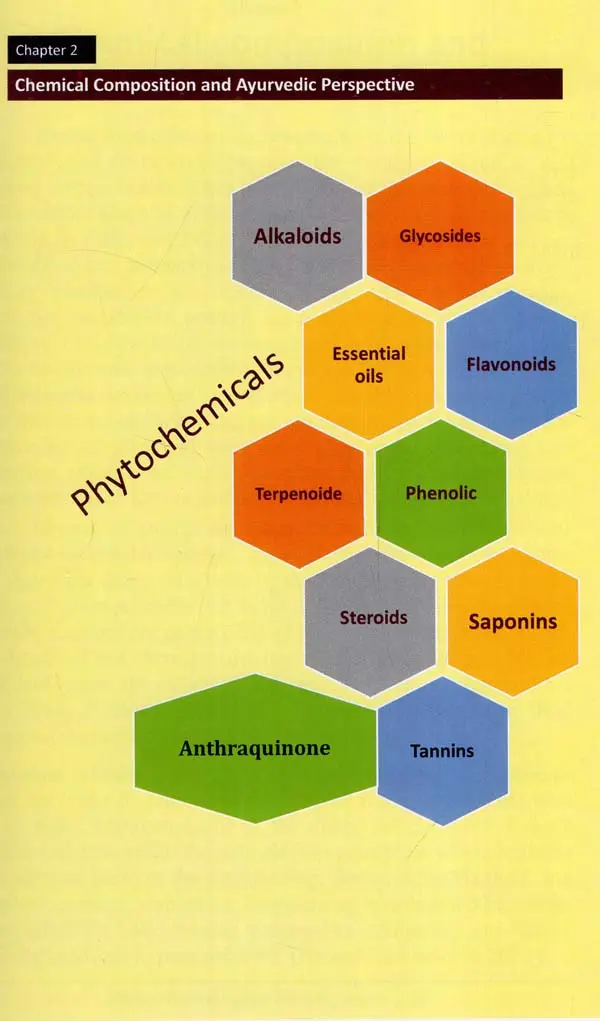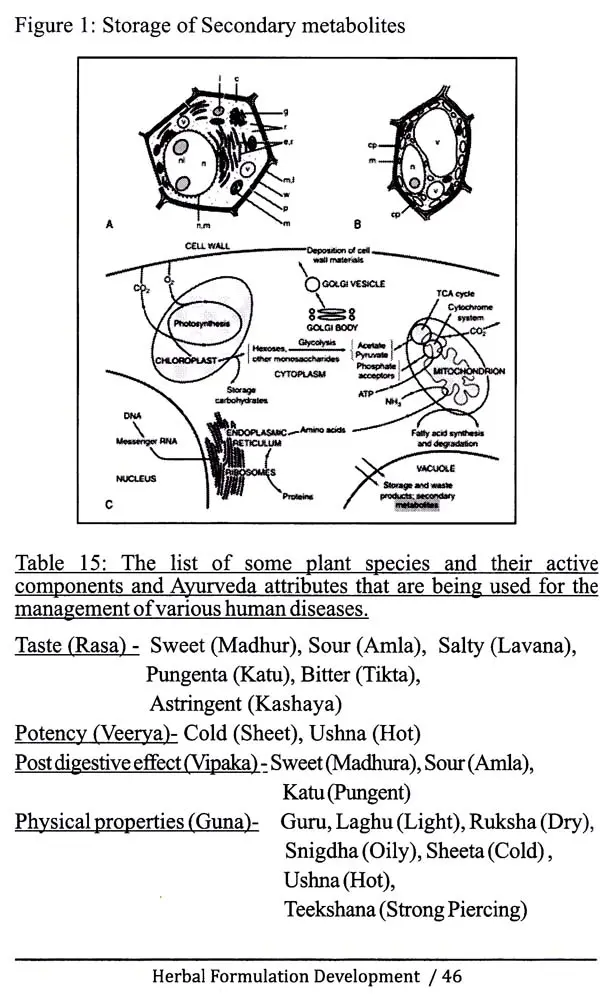
Herbal Formulation Development (Traditional and Modern Prospective)
Book Specification
| Item Code: | UAK480 |
| Author: | Veena Deo and Manasi Deshpande and Omkar Kulkarni |
| Publisher: | Manakarnika Publications, Pune |
| Language: | English |
| Edition: | 2019 |
| ISBN: | 9788194255857 |
| Pages: | 143 |
| Cover: | PAPERBACK |
| Other Details | 8.50 X 5.50 inch |
| Weight | 190 gm |
Book Description
In last 25 years I have been working in the Research and Development department of Ayurvedic Pharmaceutical industry which helped me to week extensively in the herbal formulation development During my tenure, I came across a lot of minute details in the formulation processes which helped me realize that there is a serious need to clarify many issues like raw material selection, its dosages, rationale behind selection of any particular dosage form ete. While working and compiling references related to these issues, I came across a life-turning opportunity visit and seek blessings at "Shree Sadguru Vishwanath Maharaj Rukdikar Trust, Kolhapur". It is indeed a highly positive and blissful place charged with the humanitarian approach of the Respected Maharaj as well as their fellow disciples. I sat down near the Audumbar tree to seek blessings and suddenly a thought to share my little experiences and knowledge in the industrial formulation development in the form of a book touched my mind I believe that's the insight probably Maharaj suggested me, and I decided to follow the path which he gave.
I knew that this is a big task and I would need the help from some of the other experts who are equally motivated and having a diverse set of expertise. This reminded me of Dr. Manasi Deshpande (Head of Department, Dravyaguna Vigyan, BVDUCOA, Pune) who is highly reputed academician and an experienced Dravyaguna author. She had already published a few books in the similar subject which were well appreciated by the students and clinicians. She, being a very positive and cooperative lady, readily accepted to be associated with this mission and given her consent to write few important chapters for this book.
The structure of the book was thus finalized. However, we wanted this book to be useful to the coming generation in the field of Ayurveda. The coming years, on the advent of latest technology, changing customer behaviors and need of smart medications are going to be tough for this coming Ayurvedic practitioners. So, we decided to involve a representative from the new generation who is equally efficient in traditional and modern formulation development. And we unanimously thought of Dr. Omkar Kulkarni. His experience in Ayurvedic drug manufacturing and development of modern nutraceuticals jointly would help open a new dimension in our field which may be useful to handle a new-age challenges.
Latest advancement of diagnostic technology, targeted medicines and awareness about the health has been able to conquer global healthcare burden. However, because of the increased cost and saturation of advanced facilities only in the developed countries has restricted its outreach in majority of areas especially in the developing and underdeveloped countries. Most of these populations are still dependant on the traditional systems of medicines for their primary healthcare needs. Currently more than 75% of the population has used traditional medicinal practice in their lifetime. According to a 2012 national survey, more than 30 percent of adults and about 12 percent of children Americans use health care approaches that are not typically part of conventional medical care or that may have origins outside of usual Western practice.
When describing these approaches, people often use alternative' and 'complementary' interchangeably. If a non mainstream practice is used together with conventional medicine, it's considered 'complementary'. If a non-mainstream practice is used in place of conventional medicine, it's considered 'alternative". Most people who use non-mainstream approaches also use conventional health care. These traditional systems are evidence based, culturally transferred to next generations and focused mainly on preventive aspects through lifestyle modulations, diet and natural medicines. Ayurveda and Yoga are two such most widely accepted and practiced traditional systems of medicine which are successfully in practice in Asian continent for more than 5000 years.
Majority of these traditional practices including Ayurveda and Yoga are scripted in the native languages and learning the same by global populations becomes a difficult task. Also, present day modern scientific tools may not directly be applicable to assess their effectiveness on account of their holistic approach, different conceptual understandings and their discrete, insufficient, unorganised sector of practicing.
Book's Contents and Sample Pages
